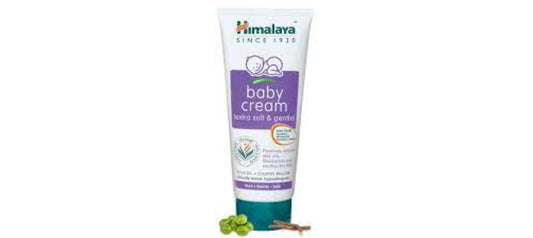Absolutely, when caring for infants with eczema or other skin conditions, it's essential to take specific precautions and considerations while using skincare products:
1. Patch Test New Products:
- Always perform a patch test before using new skincare products, even those labeled as suitable for sensitive skin. Apply a small amount on a small patch of skin and wait 24 hours to check for any adverse reactions or irritation.
2. Choose Fragrance-Free and Gentle Formulations:
- Opt for fragrance-free, hypoallergenic, and gentle skincare products specifically formulated for sensitive skin or designed for babies with eczema. Look for products without harsh chemicals, dyes, or preservatives.
3. Moisturize Regularly:
- Keep the baby's skin well-hydrated by applying fragrance-free, hypoallergenic moisturizers or emollients regularly. Apply immediately after bathing to lock in moisture.
4. Use Mild Cleansers:
- Select mild, soap-free cleansers or non-foaming washes suitable for sensitive skin. Avoid harsh soaps or cleansers that can strip the skin of natural oils and exacerbate skin conditions.
5. Bathe with Lukewarm Water:
- Bathe infants with lukewarm water for a short duration to prevent drying out the skin. Pat the skin dry gently instead of rubbing to avoid irritation.
6. Avoid Irritants and Allergens:
- Identify and avoid potential irritants or allergens that could trigger eczema flare-ups. These might include certain fabrics, chemicals in detergents, or specific foods if breastfeeding.
7. Be Mindful of Clothing:
- Dress infants in soft, breathable fabrics such as cotton to minimize skin irritation. Avoid wool or synthetic materials that may aggravate sensitive skin.
8. Seek Medical Advice:
- Consult a pediatrician or dermatologist before introducing new skincare products or treatments, especially if the infant's skin condition persists or worsens.
9. Trim Baby's Nails:
- Keep infant's nails trimmed short to prevent scratching, which can further irritate the skin and lead to infections.
10. Monitor and Adjust Care Accordingly:
- Observe how the baby's skin responds to skincare products. If any products seem to cause irritation or worsen the condition, discontinue use and seek medical advice.
11. Control Environmental Factors:
- Maintain a moderate room temperature and avoid extreme heat or cold that could trigger skin flare-ups. Use a humidifier to add moisture to the air if needed.
Taking these precautions and using gentle, appropriate skincare products can help manage and soothe the symptoms of eczema or other skin conditions in infants, providing relief and comfort to the baby. However, consulting a healthcare professional for personalized guidance and treatment options is crucial for managing infant eczema or other skin concerns effectively.












